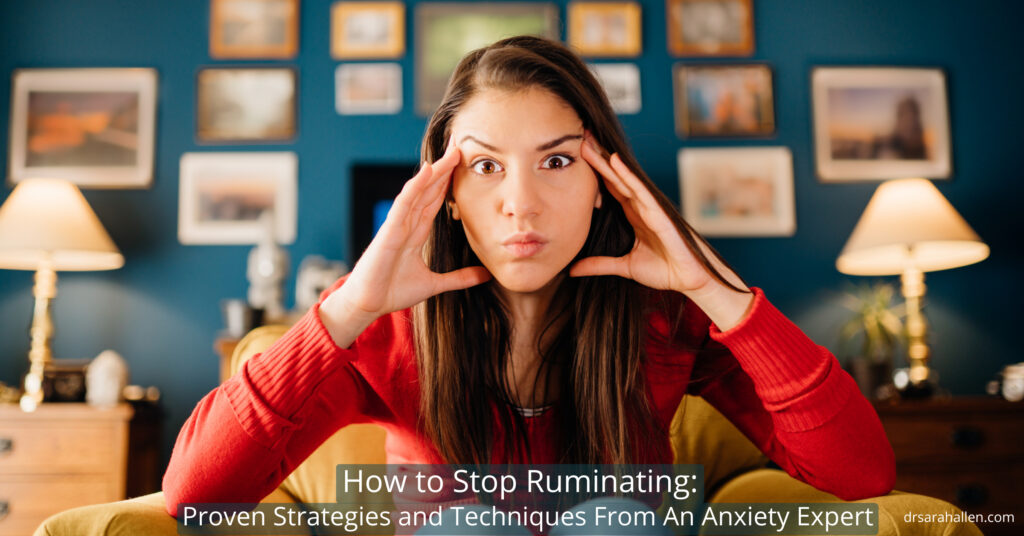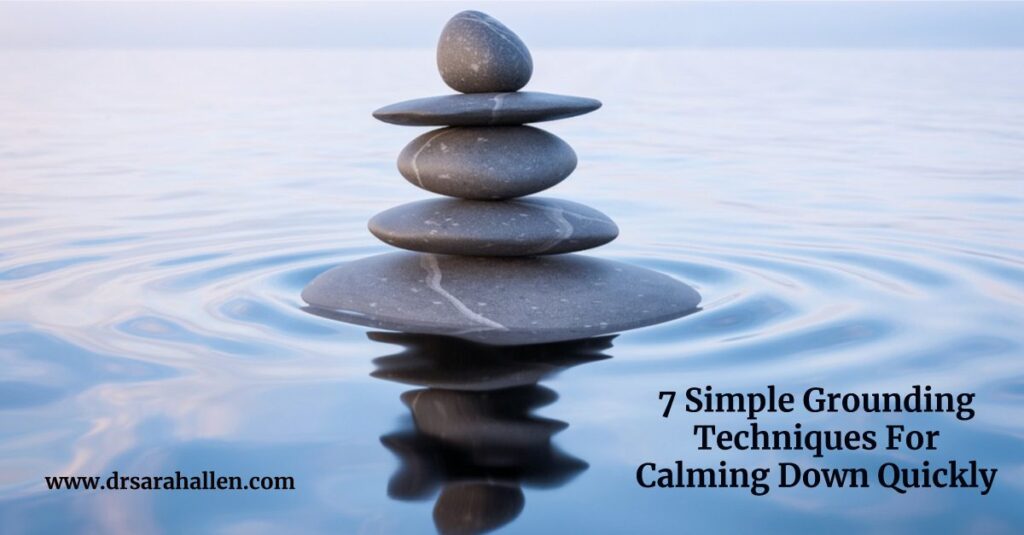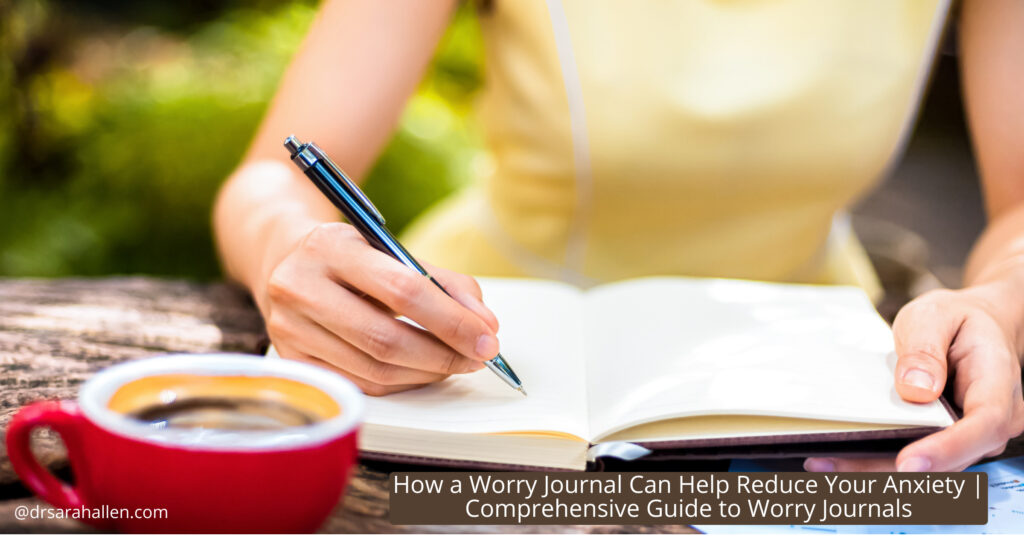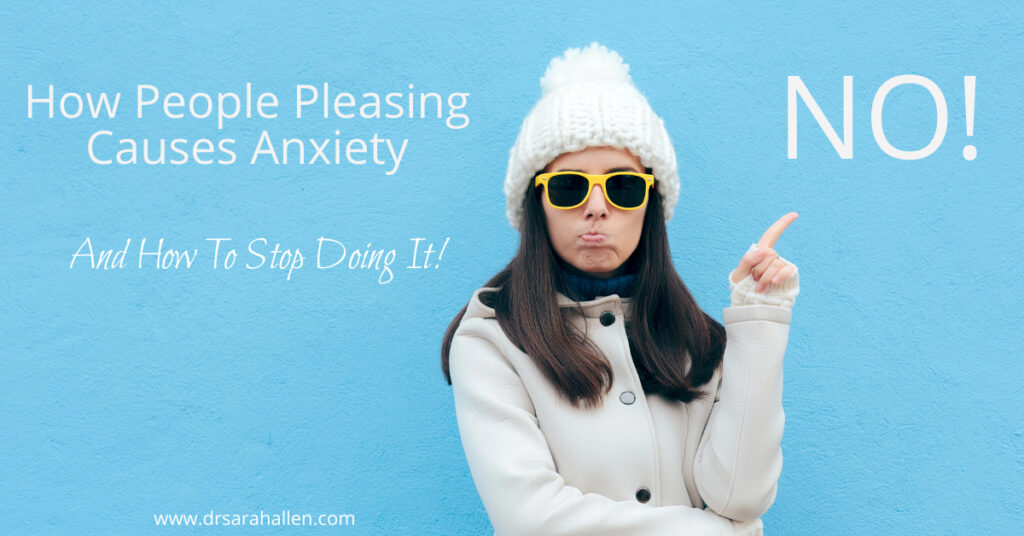
Many people find that their anxiety peaks at night. The mind becomes more active as the day ends, making it hard to relax and fall asleep. Worries and fears can seem larger when there are fewer distractions.
I wrote this article to explain more about why nighttime anxiety happens as understanding anxiety is the first step in managing it. During the day, various activities keep the mind busy. Sometimes people keep themselves constantly busy during the day to distract themselves from worrying about things. At night though, when the world quiets down, thoughts and worries can surface, sometimes overwhelming you. This can lead to difficulty falling asleep or staying asleep, further affecting your well-being.
Managing nighttime anxiety is really important for our overall health as it affects sleep which is crucial for mental and physical well-being. When anxiety interferes with sleep, it creates a cycle of stress and restlessness. By learning how to calm your mind and body before bedtime, or if you wake in the night, you can improve your sleep quality and reduce anxiety.
In this article, I will share what I’ve learned about nighttime anxiety and share some effective strategies to manage it, in particular how Cognitive Behavioral Therapy (CBT) can help you regain control and achieve better sleep.
Why Anxiety Is Worse at Night
Nighttime can be prime time for anxiety for various reasons. During the day, tasks, social interactions, and activities keep the mind engaged. When the day winds down, the lack of distractions can bring worries into sharper focus. This quiet time can make anxious thoughts seem louder and harder to control.
Darkness and silence also contribute to heightened anxiety. Lying in bed, thoughts can magnify without the usual daytime distractions. This can create a loop where worry leads to inability to sleep, and lack of sleep exacerbates anxiety. Your mind may fixate on issues because it has fewer external stimuli to process.
Another reason anxiety worsens at night is due to the body’s natural circadian rhythm. As bedtime approaches, the body prepares for rest by reducing stress hormones. Ironically, this natural relaxation can sometimes backfire. As the body calms, the mind might react by ramping up anxiety to compensate, feeling the need to resolve unresolved concerns before truly resting.
Common Symptoms of Nighttime Anxiety
Nighttime anxiety can make it difficult to fall or stay asleep, leading to a cycle of sleep deprivation and increasing anxiety as we wonder how we are going to get through the busyness of the next day if we are so tired. Here are 8 common symptoms:
1. Racing Thoughts
Your mind feels like it’s on overdrive. You may replay past conversations, stress about decisions, or catastrophize about the future. Racing thoughts often make it difficult to wind down, even when you’re physically exhausted.
2. Trouble Falling or Staying Asleep
People with nighttime anxiety often find that they struggle to fall asleep, no matter how tired they feel. You may toss and turn for hours, or wake up in the middle of the night with your mind racing.
3. Physical Tension
Anxiety doesn’t only affect your mind—it shows up in your body too. Many experience physical sensations like tight muscles, a racing heartbeat, or even trembling. These symptoms can heighten at night as your body processes the day’s stress.
4. Digestive Upset
Anxiety can trigger physical symptoms in your stomach, such as nausea, cramping, or an unsettled feeling. If you notice sudden digestive discomfort at night, it could be linked to anxiety.
5. Breathlessness
Shortness of breath or the sensation that it’s hard to take a full breath are common physical signs of heightened anxiety.
6. Night Sweats
Do you find yourself overheating or waking up drenched in sweat? Anxiety could be affecting your body’s ability to regulate itself properly in the middle of the night.
7. Increased Irritability or Restlessness
At night, without the distractions of the day, anxiety might emerge stronger. You may feel irritable without knowing why, or restless and unable to sit still.
8. Worry About Not Sleeping
One of the most frustrating symptoms of nighttime anxiety is the cycle of worrying about getting enough sleep. The more time you lie awake worrying, the harder it can be to fall asleep, creating a self-perpetuating loop.
In addition, the lack of restful sleep can deteriorate mental health. Anxiety and depression often feed into each other, creating a cycle that’s hard to break. This can make nighttime anxiety a significant barrier to overall wellness. By addressing these symptoms and their effects, it becomes possible to find effective strategies for managing nighttime anxiety and improving quality of life.
Techniques to Manage Nighttime Anxiety
Managing nighttime anxiety starts with creating a calming bedtime routine. Here are some techniques that can help:
1. Try light movement during the day
Light exercise like yoga or brisk walking, can help regulate anxious energy. Regular physical activity can also boost sleep quality.
2. Establish a Routine
Going to bed at the same time each night can help set your body’s internal clock. A consistent sleep schedule makes it easier to fall and stay asleep.
3. Create a Relaxing Environment
Make your bedroom a calm place. Use dim lights, keep the room cool, and remove any distractions like electronics. Soft music or white noise can also promote relaxation.
4. Limit Stimulants
Avoid caffeine and heavy meals close to bedtime. These can interfere with your ability to fall asleep. Instead, opt for a light snack if you’re hungry before bed.
5. Avoid Certain Food & Drinks
Heavy meals or excessive alcohol close to bedtime can disrupt your natural sleep rhythms.
By using these techniques, you can create a calm and soothing pre-bedtime routine. This can help reduce anxiety and improve sleep quality.
How CBT Can Help Manage Nighttime Anxiety
Cognitive Behavioral Therapy (CBT) is an effective approach for managing anxiety, including nighttime anxiety. CBT helps identify and change negative thought patterns that contribute to anxiety. By addressing these thoughts, you can reduce their impact on your overall well-being.
1. Write Out Your Thoughts Before Bed
Writing down your thoughts before bed can help clear your mind. An hour or two before bed, take 10 minutes to jot down your worries or next day’s to-do list in a journal. Writing out your worries helps transfer them from your mind to paper, giving you a sense of release. End by listing three things you’re grateful for, as gratitude has been shown to reduce stress and improve sleep quality.
2. Challenge Your Anxious Thoughts
CBT teaches us that not all thoughts are facts. When your brain is spinning with anxious thoughts try this simple exercise:
Write It Down: Grab a notebook and jot down the thought causing distress. For example, “What if I embarrass myself in tomorrow’s meeting?” Nighttime anxiety often revolves around “what-ifs” and worst-case scenarios.
Firstly, identify your thoughts, in particular the thoughts that evoke negative emotions.
Next use the Challenge the Negative Thought technique to examine your fears:
- Ask yourself, “Is this thought realistic?”
- “What’s the evidence for and against this thought?”
- “What’s the best-case scenario?”
- “What’s the most likely scenario?”
- “Is there a more balanced way to view this?”
Then replace your negative thought “What if I embarrass myself in tomorrow’s meeting?” with a more balanced one e.g. “I’ve prepared well and can always adjust mid-presentation if needed”.
This practice helps reduce the emotional weight of anxious thoughts, replacing them with more rational and calming perspectives.
3. Use Empowering Self-Talk
Nighttime is when the inner critic can get loud, filling your mind with doubt or nagging guilt. Replace self-critical thoughts with kind, compassionate self-talk. For example:
- Instead of, “Why can’t I just fall asleep like everyone else?” Try, “It’s okay to struggle sometimes; I’m doing my best to take care of myself.”
These small shifts in language can reduce emotional distress and help foster a sense of safety and reassurance as you wind down.
4. Use The “Worry Window” Techniques
Keeping worries in check is hard if your brain decides bedtime or the middle of the night is the perfect moment to solve life’s problems. The worry window technique can help:
- Schedule “Worry Time”: Set aside 15–30 minutes earlier in the day to focus on your concerns. Use this time to brainstorm solutions or simply acknowledge the worries.
- Redirect at Night: When worry arises before bed, remind yourself, “I’ve already had my worry time today—I’ll revisit this tomorrow if needed.” This allows bedtime to stay a worry-free zone.
5. Reframe Sleepless Nights
One of the sneakiest parts of nighttime anxiety is the pressure to “just fall asleep.” The more pressure you place on yourself, the harder sleep becomes.
- Reframe Your Thoughts: If you’re lying awake, tell yourself, “Resting is still beneficial. My body is recharging even if I’m not fully asleep.”
- Get Up If Needed: If you’re still awake after 20–30 minutes, try leaving the bed and doing a calming activity (like reading or listening to soft music) until you feel drowsy. This reinforces the association between your bed and sleep, not stress.
6. Practice Mindfulness or Relaxation Techniques
Grounding yourself in the present moment can reduce anxiety and prepare your body for rest. Try these techniques:
- Progressive Muscle Relaxation (PMR): Start at your toes and gently tense, then relax each muscle group in your body as you move upward. This releases built-up tension and signals your body it’s time to relax.
- Mindful Breathing: Close your eyes and focus on slow, even breaths. Try inhaling for 4 counts, holding for 4, exhaling for 4, and repeating. This slows your heart rate and calms your nervous system.
- Guided Sleep Meditations: Apps like Calm or Insight Timer offer soothing bedtime meditations.
7. Building New Habits
I’ve seen CBT work wonders for clients struggling with nighttime anxiety. The structured approach helps people feel more in control of their thoughts and behaviors, leading to better sleep and reduced anxiety over time. Working through CBT exercises helps develop long-term skills for managing anxiety effectively.
Conclusion
Nighttime anxiety can be a challenging issue, but you can take steps to manage and reduce its impact on your life. Understanding why anxiety worsens at night and recognizing its symptoms are crucial first steps. By employing techniques like establishing a bedtime routine, creating a calming environment, and practicing relaxation methods, you can alleviate much of the stress that keeps you awake.
Cognitive Behavioral Therapy offers a structured and effective way to deal with nighttime anxiety. By changing negative thought patterns and learning new coping strategies, you can regain control over your nights and improve your overall well-being.
If nighttime anxiety is affecting your sleep and daily life, consider reaching out for professional support. Dr. Sarah Allen is an experienced anxiety therapist in Chicago. Contact Dr. Sarah Allen to begin your journey towards better sleep and a more peaceful night.

If you have any questions, or would like to set up an appointment to work with me and learn how to reduce anxiety, please contact me at 847 791-7722 or on the form below.
If you would like to read more about me and my areas of specialty, please visit Dr. Sarah Allen Bio.
Dr. Allen’s professional licenses only allows her to work with clients who live in IL, FL & the UK and unfortunately does not allow her to give personalized advice via email to people who are not her clients.
Dr. Allen sees clients in person in her Northbrook, IL office or remotely via video or phone.

What Can I Read That Helps Me While I Am Waiting For My First Appointment With Sarah?
Download this free booklet to gain valuable insights and practical strategies for managing anxiety and worrying.
































